BUSINESS
SENEGAL – Two Egyptians hijack boats and hide them at the Port of Dakar
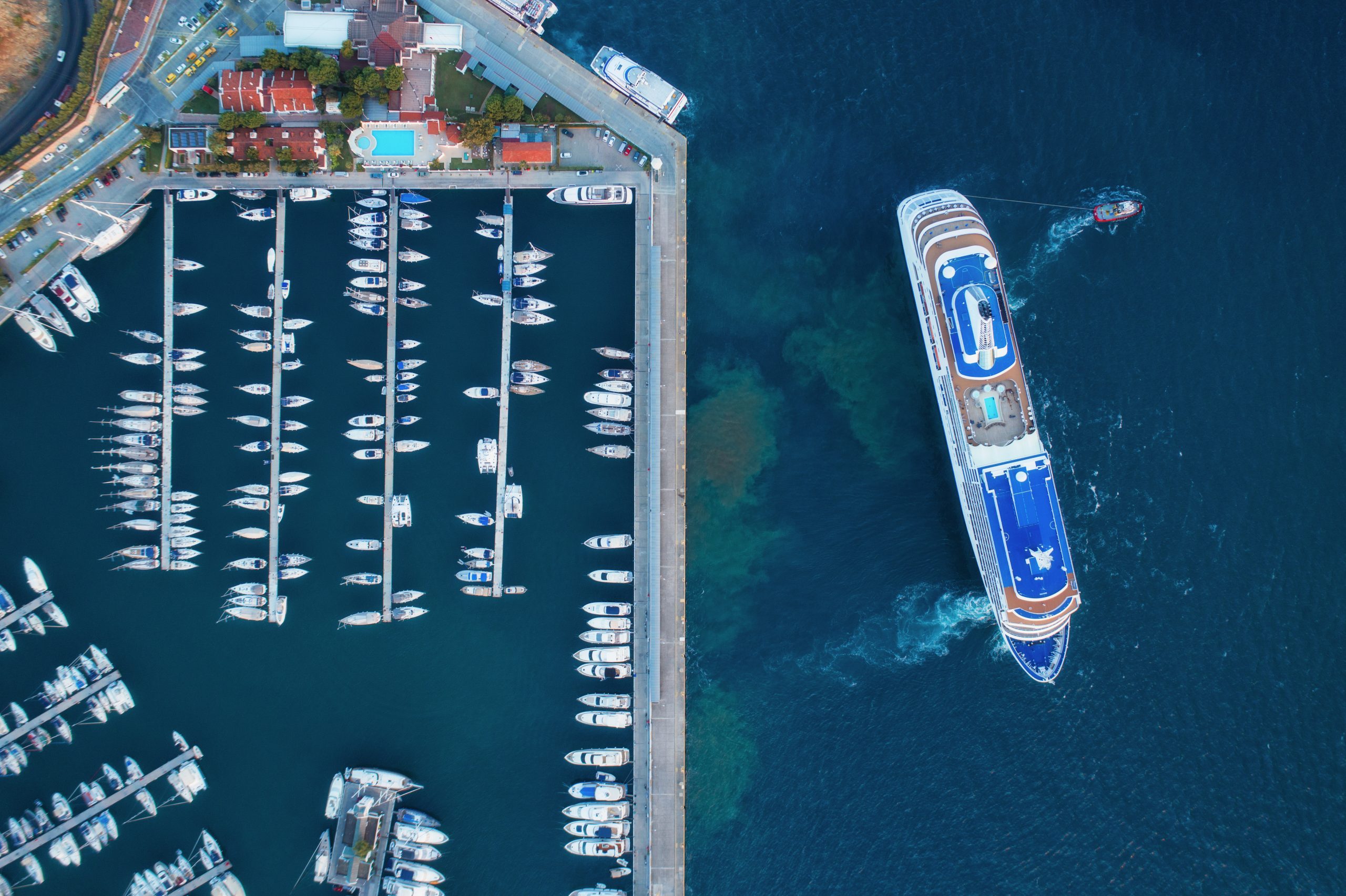
The accused claim that they were seeking refuge in the Senegalese capital to flee Guinea-Bissau and their boss who reportedly threatened to kill them. The latter swears that his employees illegally changed course with their cargo of fish. Plunged into a fantastic affair that required the DIC a little more than two months of investigation.
On 19 May 2023, the Prosecutor of the Republic sent to Chione a copy of the complaint filed by Hossam Koumayha. They are Salem Tahan and Ali Kanoun. The complainant is a shipowner based in Guinea-Bissau. He is the owner of the fishing company called Ocean Fishing Bissau SARL. His company has fishing boats and units for freezing fish products.
Tahan and Kanoun are Egyptian. They were employed by Koumayha as captains of the “Hassan & Fekry” and “Aleman” boats, respectively. They were referred to the prosecution on Tuesday 25 July. According to our information, they are being prosecuted for embezzlement, misdirection, interference with police regulations and security of navigation and smuggling.
The two accused allegedly illegally, according to the investigation, drove the two vessels of their boss from Guinea-Bissau to Senegalese waters. They would have hidden them at the Port of Dakar before unloading and trying, in vain, to put on the market their loads of fish.
Rental contract
March 2021. To strengthen the fleet of his company, Hossam Koumayha takes the two boats rented from the two Egyptians he has brought to justice. Each vessel cost $12,000 (approximately 7.1 million CFA francs) for one year of operation. The rental contract established, it changes the Egyptian registration of the boats in Guinea-Bissau.
According to their agreement, Salem Tahan and Ali Kanoun remain in control of the ships. The activities start in January 2022, when the rental contract took effect. The two masters made tides of up to eight days, after which they returned to the dock and made the fishery available to the plant.
The collaboration lasts a year without a hitch. But on April 8, around 10 am, Hossam Koumayha noted an anomaly in the control system of his ships: «Hassan & Fakry» and «Aleman» tangled away from Bissau-Guinean waters. And will reach the Senegalese maritime borders at 2pm.
Radio silence
The shipowner tried unsuccessfully to reach his collaborators. The communication and location system of the two boats was cut. As well as the VMS, which allow to control the ships at the level of the ECOWAS zone.
Koumayha managed to reach the inspector of one of the boats. But the latter tells him that these were diverted and were located a few nautical miles from the Port of Dakar. The businessman informs the competent authorities of Guinea-Bissau before jumping on a plane to Dakar.
He was not at the end of his troubles by setting foot in the Senegalese capital. Before going to the Port of Dakar and discovering that his ships are hidden at pier 105, he runs into the refusal of the Senegalese Ministry of Fisheries when he requests the blocking of the cargo of fish.
The guardianship informs him that given the perishable nature of the load, he authorized its landing and storage in a specialized factory of the place, pending the outcome of the procedure.
Storage
The plant in question is called Diop & Frères. It belongs to a certain Aliou Thiam, CEO of the Baye Niass Establishment, specialized in fishing, armament, consignment, handling and processing of fishery products. Consignee of the two ships, Thiam bought «Diop & Frères» from Mamadou Diop. At the time of the dispute over the Bissau-Guinean flag, the two men were in the process of finalizing the sale, but the buyer had already taken control of the company.
The CEO of the Baye Niass Establishment states that he was hired in February 2022 as consignee of the two boats by a certain Nicolas Nectoux. He claims that the latter, a French national, presented himself to him as the legal representative of the two ships in Senegal. He had, he said, given him the role of taking care of all the administrative formalities for each entry of the boats to the Port of Dakar.
This is how, he reports, Nicolas Nectoux announced to him, on April 8, the arrival in Dakar of «Hassan & Fekry» and «Aleman». He alerts the Harbour Master’s office to obtain entry permits, contacts the police for clearance formalities and informs the customs for dockside inspection visits.
Everything is obviously well on the wheels. But when the ships arrive, the information falls: the maritime authorities inform him that the ships are the subject of a dispute and that, consequently, the formalities in progress are suspended. Aliou Thiam cables the Ministry of Fisheries and obtains the authorization to unload the cargo of fish. He keeps it in his freezer units pending the outcome of the dispute.
Disagreements
uid of the amount of fish landed? He informs that his agents had communicated to him 15 tons, but after the inventory which he supervised himself, he held 22,505 tons for both boats. In addition, he recorded 1610 cassettes that he kept in his warehouses.
Aliou Thiam ensures that the unloading and storage operations were conducted by his shipping agent, Amadou Guèye, in the presence of Nicolas Nectoux and under the supervision of an officer of the Directorate of Fisheries Protection and Surveillance (DPSP) and a representative of the Ministry of Fisheries.
While Amadou Guèye, Mamadou Diop and Mamour Thiam Ndiaye, an employee at Diop & Frères, who were heard as part of the investigation, confirmed Aliou Thiam’s statements, Nicolas Nectoux partially contested them.
The latter states from the outset that, contrary to Thiam’s assertion, he never presented himself as the representative of the two ships. Rather, he corrects the investigators, he is the representative of the two Egyptian captains. And to convince his interlocutors, he filed the proxy established in this sense by the accused on their arrival in Dakar.
Nicolas Nectoux said he was informed of the arrival of the two ships the day before, on April 7. He says he was alerted by phone by Ali Kanoun. The latter reportedly informed him that he and Hassan Tahan were going to flee from Guinea-Bissau on board their ships to take refuge in Dakar. Deploring that their boss owed them several months of salary and would not stop threatening them with death every time they expressed the wish to terminate the contract that binds them. It was then a question for Nectoux to help the fugitives to enter the Port of Dakar. Which he did.
The latter admitted to having then witnessed the unloading of the cargo of the two ships as well as their convoying by trucks at the Diop & Frères factory. He hastened to add that he does not know the composition of the load and its quantity, even if the two captains would have told him that he had each unloaded about 10 tons.
Blocked sale, contradictions
Did the French and the two Egyptians sell part of the fish stock landed by the two vessels? Nicolas Nectoux swears that no, confirmed ar the two questioned.
Certainly, Hassan Tahan and Ali Kanoun have revealed that they have mandated Nectoux to sell the product. And in this perspective, the Frenchman gave them as an advance on the total of the probable subsequent sale, 3.2 million and 3.5 million CFA francs, respectively. But when the product was blocked by the Ministry of Fisheries and stored in the warehouses of Diop & Frères, the sale had become impossible.
Noting the contradictions in each other’s statements, the DIC organized a confrontation between Hossam Koumayha, Aliou Thiam and Nicolas Nectoux. This initiative did not allow the investigators to go any further. Each one, according to them, decided on its position. In particular, with regard to the period of validity of the contract binding the complainant on both parties.
It took effect on July 4, 2021 and expired on July 4, 2022. But, says Hassan Tahan, given the delay in the delivery of the two ships, a verbal agreement was reached with the complainant for an extension until January 2023.
Was this contract renewable «by tacit renewal» as claimed by Hossam Koumayha? No, swears the two involved. After July 4, 2022, did they take legal action against their former boss? Unimaginable in Guinea-Bissau, according to Tahan and Kanoun. Who claim that such a procedure would lead to nothing since Koumayha would be super protected in this country.
Clearly, the only solution available to them, to escape the clutches of their boss, according to their version, was to run away. And Senegal seemed, in their eyes, the ideal refuge.
These statements did not convince the investigators. The two Egyptians were thus referred to the prosecutor’s office for embezzlement of ship, wrong course, obstruction of police regulations and security of navigation and smuggling.
Huge losses
The complainant deplores huge losses. He assures that the eight days of tides of his ships brought him 51 tons, 28 tons for «Hassan & Fekry» and 23 tons for «Aleman», for a total of 30 million CFA francs, in addition to 2100 cassettes worth more than 51 million CFA francs.
And that’s not all. Koumayha states that his company must pay penalties of 110 million CFA francs, for «Hassan and Fekry», and 55 million CFA francs for «Alema». The fault? The fact that the beacons of the two ships were cut by its employees and that they crossed the maritime borders of Guinea-Bissau without the authorization of the competent authorities of that country.
In addition, the shipowner accused the two Egyptians of diverting 13,000 litres of diesel oil stored in the two vessels. With a total value of 8 million 385 thousand CFA francs, this fuel was to be used for other tides. Added to this is the two-month suspension of operation of the two vessels, the damage of which, according to the complainant, would be 120 million CFA francs.
If you heat the calculator, it appears that Hossam Koumayha would have lost 374 million 385 thousand CFA francs. And the bill may be more expensive because the ships will not resume their activities until the dispute is cleared.
BUSINESS
DIGITISATION OF VISA APPLICATION PROCEDURES – EU Schengen visa will go online by 2026

SchengenVisaInfo, the European Union will take a big step towards “digitizing Schengen visa application procedures”. Indeed, the Council of the EU approved last Monday, November 14, 2023 two new regulations including “the digitization of Schengen visa application procedures, also abandoning consulate appointments and visa stickers”.
‘Between 22 and 25 million visa applications worldwide will be processed via this platform when it launches. Candidates and Member States will benefit from this platform as it will save them time and money,’ informed SchengenVisaInfo.
In 2026, the European visa application platform and the digital visa would coexist. After the end of the transition period (end of 2028), all visa applications would be filed online via the EU visa application platform (except for some exceptional cases where a paper procedure would remain possible).
This platform will be a real ‘Revolution in the European visa application sector, which will completely reshape the experience of travelers when obtaining a Schengen visa, making it not only cheaper, but also less time and energy consuming, and therefore less stressful. The platform will also eliminate the possibility of refusal for a request addressed to the wrong embassy”.
A LA UNE
AFIS AWARDS 2023: Brvm wins Innovative Deal of the Year award
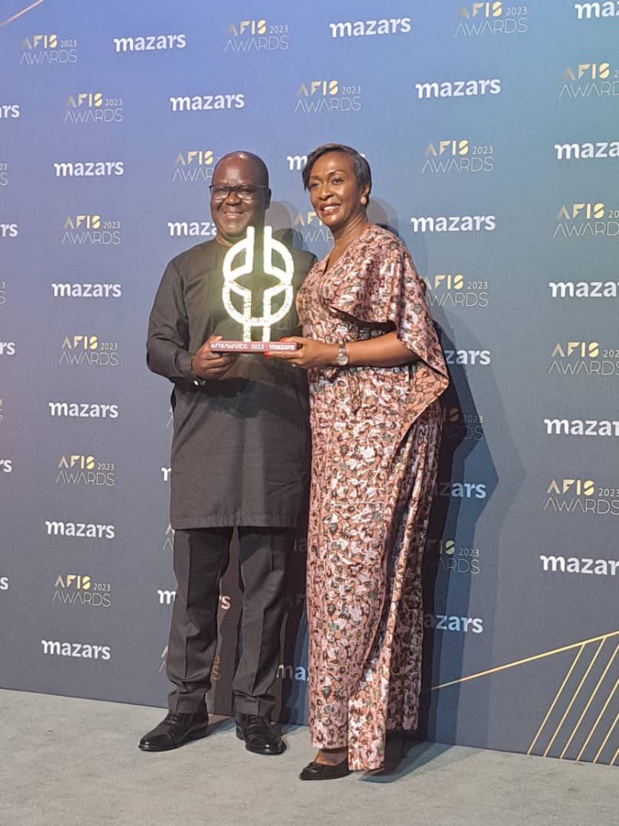
The Bourse Régionale des Valeurs Mobilières (BRVM), received the Innovative Deal of the Year Award from the AFIS AWARDS 2023, in conjunction with the SGI EDC Investment Corporation. It was on the occasion of the African Financial Industry Summit (AFIS), held in Lomé (Togo), on November 15 and 16, 2023.
A statement from the Brvm informs that this prize is awarded relative to the success of the introduction to the BRVM of Orange Côte d’Ivoire, on December 30, 2022, with a record capitalization at the introduction of 1538.19 billion Cfa francs.
The document reports that the distinction made to the BRVM through the «Innovative Deal of the Year» Award reflects the recognition of the African financial industry to a rare transaction in recent times on the markets (partial privatization by IPO) which raised the WAEMU stock market to fifth place on African stock exchanges in terms of capitalisation in September 2023.
Dr Edoh Kossi AMENOUNVE expressed the gratitude of the BRVM, its Board of Directors, its General Management and all its staff who are honoured to receive this distinction. It is the culmination of the efforts undertaken over several years in terms of promoting the regional financial market and innovation.
Dr AMENOUNVE took the opportunity to express his deep gratitude to the Ivorian Government and its Privatization Committee whose vision and leadership he praised. He thanked them for their ongoing concern for the BRVM. The public offer to sell the shares of Orange Côte d’Ivoire was arranged and conducted by SGI EDC Investment Corporation (Ecobank Group) co-winner of the prize.
Initiated by Jeune Afrique Media Groupe (JAMG) in partnership with Mazars, the AFIS Awards annually reward five categories of companies and individuals who have contributed significantly to the growth of the African financial sector.
BUSINESS
DJBOUTI – The country inaugurates its first wind farm
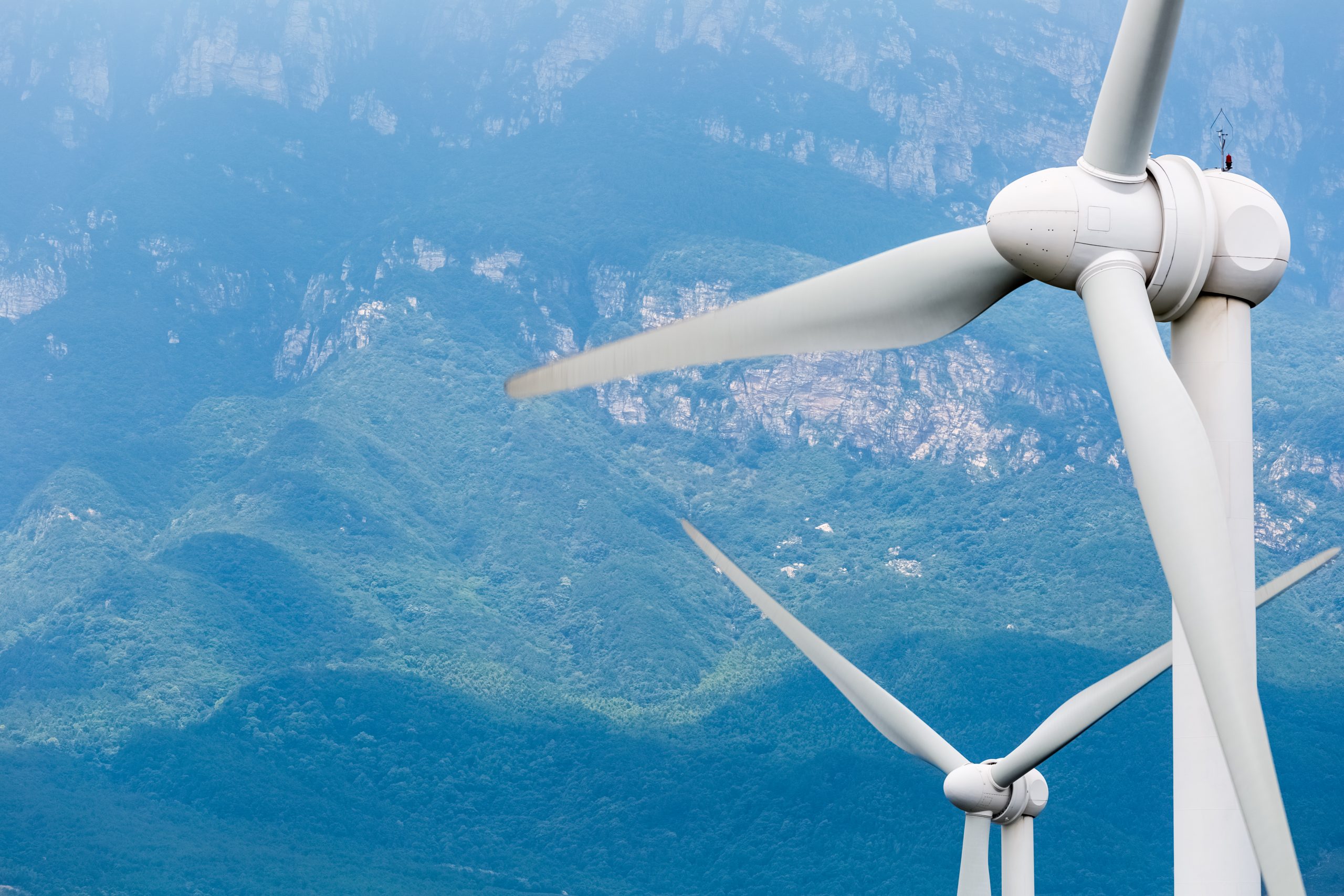
Red Sea Power (RSP) wind farm near Ghoubet Bay will provide 60 Megawatts of clean energy, increasing overall capacity by 50% and avoiding 252,500 tonnes of CO² emissions annually.
The 60 MW plant increases the energy capacity by 50% and avoids the emission of 252,500 tonnes of CO2. An additional capacity of 45 MW is planned by the investment partners AFC. In support of the UN SDGs, the facility is synonymous with energy security and independence, import substitution, industrialization, job creation and economic stability. President Ismaïl Omar Guelleh will proceed on Sunday, September 10, 2023 to the historic inauguration of Djibouti’s first wind farm, Thus embodying its announced ambition to make the country the first in Africa to rely exclusively on renewable sources for its electricity by 2035.
The Red Sea Power (RSP) wind farm near Ghoubet Bay will provide 60 megawatts of clean energy, increasing overall capacity by 50% and avoiding 252,500 tonnes of CO2 emissions annually, the equivalent of more than 55,000 buses. The project, the first major international energy investment in Djibouti worth USD 122 million, creates the country’s first independent power producer (IPP) and will serve as a model for future private investment.
An additional 45 MW of renewable energy capacity is already expected by the investor consortium led by RSP and composed of infrastructure solutions provider Africa Finance Corporation (AFC) as lead developer; the Dutch Entrepreneurial Development Bank FMO; the Climate Fund Managers (CFM) mixed finance fund manager; and Great Horn Investment Holding (GHIH), an investment company owned by a unit of
the Authority of Ports and Free Zones of Djibouti and the Sovereign Fund of Djibouti.
Until today, Djibouti relied entirely on imported fossil fuel-based electricity, as well as hydrogen-fired electricity from neighbouring Ethiopia. Less than half of the 123 MW of installed national capacity is operational due to the age of diesel power plants.
The new wind power plant will boost industrialization, job creation and economic stability as Djibouti seeks to leverage its strategic position as a global transshipment hub.
With its vast coastline and strategically positioned port facilities along the Red Sea and Gulf of Aden, Djibouti has a central role to play in the global energy market. The country has enough wind, solar and geothermal resources to triple its current capacity and exceed 300 MW. The country also hosts the world’s highest concentration of foreign military bases due to its location at the entrance to the Bab el-Mandab Strait, the corridor used by 30% of world trade. Djibouti’s new wind farm provides an opportunity for these and other businesses currently off-grid to decarbonize and replace their electricity produced mainly by diesel by clean energy.
Leveraging its seaports to diversify the economy, Djibouti set out to build an industrial zone in 2017, sparking preliminary discussions on energy capacity building. The wind farm consortium was established in 2018 and subsequently provided a bridge equity loan through AFC, FMO, CFM’s Climate Investor One Fund, and GHIH, which enabled the project to close its financing in record time (22 months). Work began in January 2020 and has continued at a steady pace despite the global supply challenges caused by the lockdowns of the Covid period.
The wind farm covers 387 hectares, the equivalent of more than 700 football fields. The 17 Siemens turbines of the site each produce 3.4 MW, served by a 220 substation megavolts amperes (MVA) and connected by an overhead transmission line of 5km to local system operator and storage facilities.
The electricity produced will be sold as part of a long-term electricity purchase agreement with Electricité de Djibouti (EDD), the national public company. Using the project as a model for future PPIs, the Government of Djibouti is already working on several other plants to increase geothermal and solar capacity.
The project is the very illustration of the use of innovative equity financing to accelerate the impact of development through risk reduction, while highlighting the commercial viability of transformation projects in Africa, by pooling various sources of capital and allowing the reproduction of similar projects at reduced financing costs.
Samaila Zubairu, President and CEO of Africa Finance Corporation: “We congratulate President Ismaïl Omar Guelleh and the people of Djibouti and our partners on this important step towards improving access to energy in Djibouti through renewable wind energy. The equity bridge loan solution we deployed mitigated construction and completion risks, demonstrating clear solution-oriented AFC capabilities, reduction of
risk and execution, and the introduction of a pragmatic method for Accelerate the financial close of projects in Africa.”
“Djibouti has abundant renewable resources for sustainable and clean energy production,” said Aboubaker Omar Hadi, President of Great Horn Investment Holding (GHIH). “ “Our goal is to be the first country in Africa to use 100% green energy by 2035. Investing in renewable energy infrastructure is key to our ambitions, and the inauguration of the groundbreaking Red Sea Power wind farm is an important milestone. A reliable and cost-effective energy solution is essential to stimulate the growth of Djibouti. With the development of industrial free zone projects, we estimate that the country should face a demand of 3,700 MW over of the next decade. Harnessing renewable resources such as solar, geothermal, wind and tidal power is essential to meeting this demand.”
“Today’s inauguration marks a leap forward to close the energy gap and ensure Djibouti’s energy sovereignty by supporting the country’s long-term socio-economic development,” said Michael Jongeneel, CEO of FMO. “
In addition to the socio-economic impacts of the project, innovation in the transactional structure itself, has the potential to create systemic benefits by encouraging investment in the region. The transactional structure has significantly reduces the risk associated with the investment. The ESD payment under the Power Purchase Agreement (PPA) are backed by a government guarantee, and the government’s obligations are theirs tour supported by political risk coverage provided by the Agency World Bank Multilateral Investment Guarantee (MIGA).
“This speaks to the benefits of blended finance,” said Andrew Johnstone, CEO of Climate Fund Managers. “ “Ground-breaking operations like this one are extremely difficult to finance through traditional project financing as this area remained unexplored and therefore there is no precedent, making it almost impossible for lenders and equity partners to assume such risk. Blended financing combines both capital
concessional and commercial, allowing investors to assume a share higher risk and providing a single source of development to exploitation. In this case, we believe that the project would simply not have been possible without a mixed approach.”
François Maze, CEO of Red Sea Power: “Access to electricity is essential for business growth, job creation, education, health care, social services and infrastructure. In a country currently fully serviced by fossil fuel and electricity imports, large-scale renewable energy solutions are urgently needed to increase resilience to climate change. Today’s inauguration is an important step in Djibouti’s goal of relying exclusively on renewable energy sources by 2035. We are proud to participate in this transition and thank all our partners for their support over the past five years to achieve our ambition.”
In addition to the new wind farm, Red Sea Power partners built a solar-powered desalination plant that was also inaugurated today. The plant will provide drinking water to the surrounding villages. Some areas of Djibouti are currently experiencing a major water crisis, with 20% of rural areas lacking access to clean water. Many households do not have enough water to meet their basic needs, especially during the dry season, such as resulting in widespread loss of livelihoods and income.
The desalination plant takes water directly into the sea using a pretreatment process that removes salt to produce drinking water. It will provide 800 residents of two villages near the park with access to 40 liters per day, which will reduce the risk of waterborne diseases and increase the education time of children, who are often sent to fetch water. RSP has been delivering 80,000 litres of water per week since 2020 as an interim solution during the construction of the plant. The goal is that the wind farm will power larger facilities in the future desalination plants.
Another component of the project is to contribute to the conservation of local biodiversity through the observation of migratory and resident birds in order to assess any change in their number or behaviour, including threatened species such as the Egyptian vulture (Neophron Percnopterus). Although Djibouti plays a crucial role as a migratory corridor and wind farms generally pose a risk of collision for birds, the geographical location of the project under the high mountains of the northeast in fact an ideal site to exploit the energy wind turbine with minimal impact on bird populations.
-

 EAST AFRICA1 year .
EAST AFRICA1 year .TANZANIA – President meets with Chairman of the Board and CEO of the Merck Foundation
-

 CHAUD TOO CHAUD3 years .
CHAUD TOO CHAUD3 years .POLITICS – [INTERVIEW EXCLUSIVE] – MADAGASCAR – Fanirisoa Ernaivo, a politician and activist committed to the rule of law and respect for democracy
-
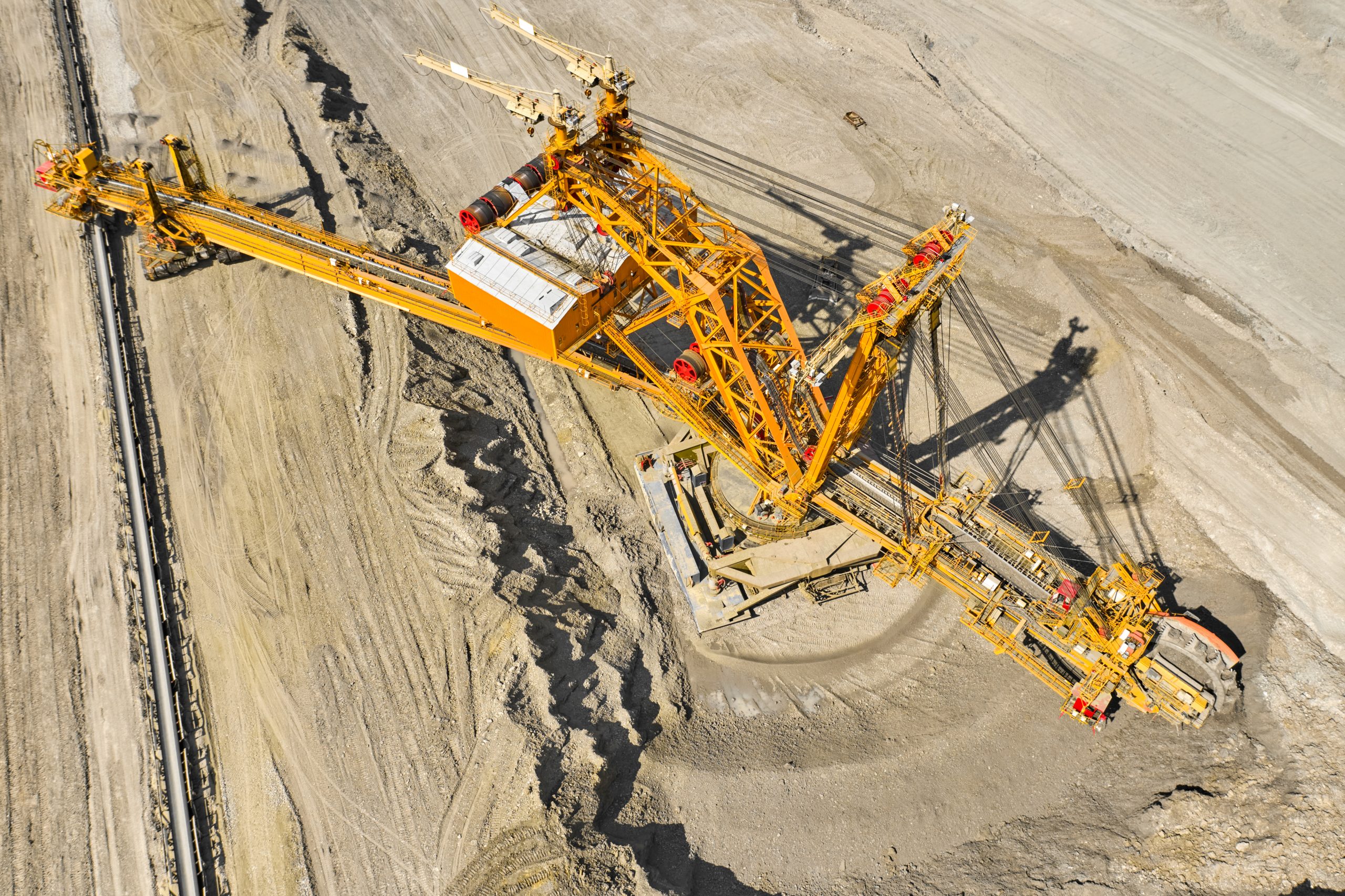
 BUSINESS8 months .
BUSINESS8 months .GUINEA – Authorities demand repatriation of mining revenues
-
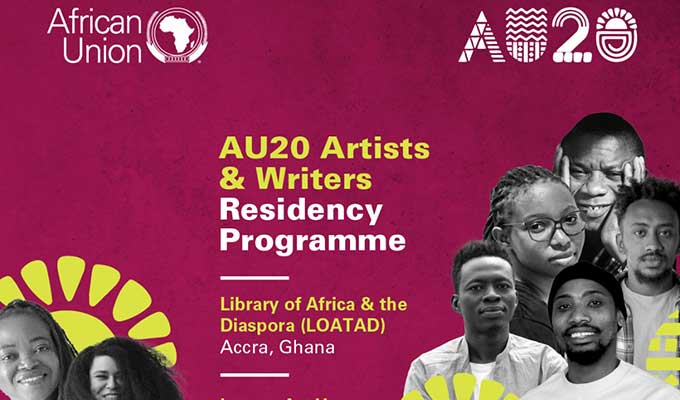
 CULTURE2 years .
CULTURE2 years .AFRICA – African writers and artists celebrate the 20th anniversary of the African Union
-

 POLITICS5 months .
POLITICS5 months .SENEGAL – Presidential election 2024: Registration of 79 candidates declared
-
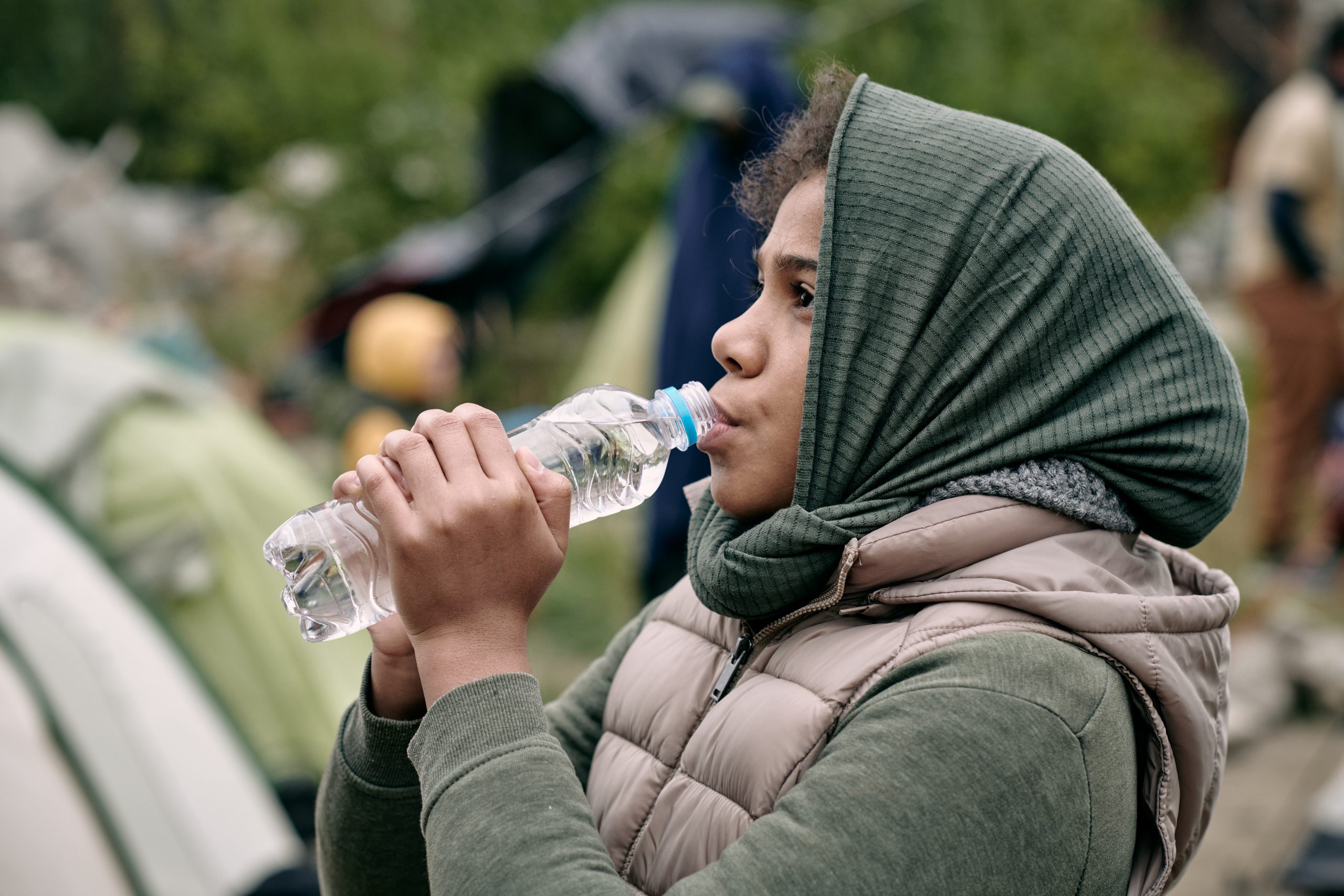
 IMMIGRATION10 months .
IMMIGRATION10 months .AFRICA – Migrant smuggling brings 59 billion CFA francs to smugglers per year
-

 POLITICS3 years .
POLITICS3 years .SOUTH AFRICA – Former President Jacob Zuma in prison
-

 CULTURE3 years .
CULTURE3 years .SENEGAL – “Sadik Lady” by Viviane Chidid



